How The Rolling Stones Changed Rock’N’Roll
From music to fashion, The Rolling Stones’ influence cannot be overstated. Here’s how they changed our culture forever.
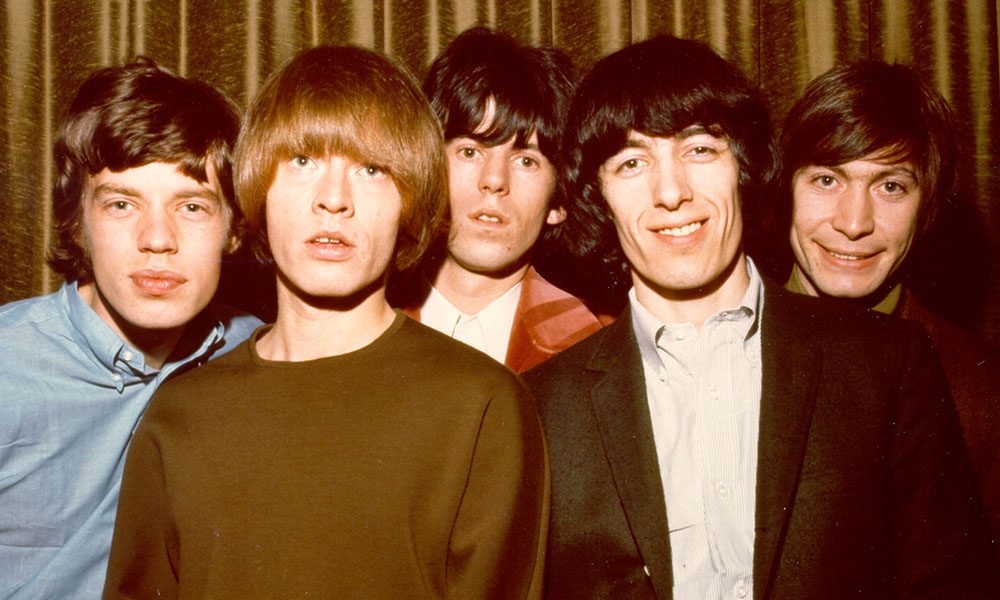
The Rolling Stones changed rock’n’roll, but they started out like any other band, playing small venues and paying musical tribute to their influences. The difference between them and other bands? The Stones went on to become global superstars, filling the largest stadiums in the world. The exhilarating drumming of Charlie Watts, the powerful guitar work of Keith Richards and the singing and showmanship of Mick Jagger helped make them one of the most important bands in the history of music – one still going strong decades later. The songs they recorded in the 60s, specifically, continue to cast a lasting influence; here’s how The Rolling Stones changed rock’n’roll – and popular culture – forever during that decade.
Listen to the best Rolling Stones 60s songs.
They brought blues to the masses
The Stones’ defining musical love is the blues, a form they helped bring to the masses in the 60s. Jagger said that the first album he ever bought was Muddy Waters At Newport. “That’s how Mick and Keith first got close as well, on the train coming back from college,” recalled guitarist Ronnie Wood. “They noticed each other’s record collection and it was, ‘Hey, you’ve got Muddy Waters. You must be a good guy, let’s form a band.’”
The famous story of how the group got their name dates to 1962, when founding member Brian Jones rang Jazz News magazine to place an advert for their first “proper” gig. When asked what the band’s name was, his eyes went straight to the first song on a Waters album lying on the floor: “Rollin’ Stone.”
The band have lost none of their enthusiasm for celebrating their heroes’ music. In 2016, they recorded a love letter to the blues, Blue & Lonesome, on which they covered 12 songs that had influenced them. Two years later, the band curated the album Confessin’ The Blues, which includes tracks by pioneers such as Howlin’ Wolf, John Lee Hooker, Chuck Berry, Elmore James, Big Bill Broonzy, and Robert Johnson. “If you don’t know the blues, there’s no point in picking up the guitar and playing rock’n’roll or any other form of popular music,” says Richards.
They’ve written countless influential songs
Though the Stones started out covering blues songs, the joint composing work of Jagger and Richards is one of the most successful songwriting partnerships in music. In the 60s, they were responsible for a string of iconic hits such as “Paint It, Black,” “19th Nervous Breakdown,” “Get Off Of My Cloud,” “Lady Jane” and “Jumpin’ Jack Flash,” with memorable lyrics such as “You got me running like a cat in a thunderstorm.”
They created iconic album covers
In the 60s, it became fashionable for bands to commission album covers from artists and art school friends. The Beatles worked with Peter Blake and Richard Hamilton; The Rolling Stones with Andy Warhol and Robert Frank. The Stones broke new ground with their album covers in other ways. The band were never short of confidence, which shows in the defiant poses for Nicholas Wright’s photograph for their debut album; the cover contained no mention of the band’s name. For the follow-up, 1965’s The Rolling Stones No.2, they used a cover shot taken by the celebrated photographer David Bailey, with Jagger stuck at the back of the group. “With The Rolling Stones I had a connection. And I liked the idea that they dressed like people on the street,” Bailey said.
They set new trends in fashion
“The costume helps you be the performer,” said Jagger, who has worn a number of celebrated outfits down the years. The band were helped initially by their manager Andrew Loog Oldham, who guided them away from the more strait-laced appearance of 50s pop stars towards a shaggier, bad-boy image that stuck. The Stones looked great in the 60s, and Jagger was never afraid to be bold, whether it was wearing a skin-tight sequin jumpsuit, a top hat, or the famous white voile “dress” during their 1969 Hyde Park show. He said of his Ossie Clark jumpsuit phase that “it was really sexy and clingy, but it was very easy to move in.”
For their 1968 album, Beggars Banquet, the band commissioned Michael Joseph, whose photographs evoke the work of Old Masters such as Hieronymus Bosch and Pieter Bruegel, to take portraits of the band. He captured them dressed in outlandish clothes that blended Swinging 60s London with Dickensian rascals. The band’s later tongue-and-lips logo was voted the most iconic design of all time.
They were the original rock’n’roll rebels
The song “(I Can’t Get No) Satisfaction” summed up the controversial, anti-status-quo swagger of young musicians who were in revolt against genteel middle-class pretensions (though Jagger was from a well-to-do background and had attended The London School Of Economics). The Stones seemed more edgy and rebellious than established stars such as Cliff Richard or Adam Faith. “It’s a very rough, very violent era,” Keith Richards said of the 60s. “Violence on the screens, pillage and burning. And Vietnam was not war as we knew it in the conventional sense.”
The Stones challenged conventions. They appeared in drag on the US picture sleeve for “Have You Seen Your Mother, Baby, Standing In The Shadow?” When they named their 1967 album Their Satanic Majesties Request, the title was a satirical take on the words inside a British passport: “Her Britannic Majesty’s Secretary Of State requests and requires…”
In 1967, the group ran into trouble with the police, following a drugs raid on a party at Redlands, Richards’ home in West Sussex. Detective Sergeant Stanley Cudmore, the officer in charge, found Jagger and his then-girlfriend, Marianne Faithfull, on a couch. “The woman had wrapped around her a light-colored fur rug which from time to time she let fall showing her nude body,” reported the officer. “Sitting on her left was Jagger, and I was of the opinion he was wearing make-up.” The prison sentences of three and 12 months, handed out to Jagger and Richards, respectively, were considered harsh, and Lord Justice Parker, the Lord Chief Justice, quashed the jail terms.
Jagger once called the Queen “Chief Witch” and proclaimed “anarchy is the only slight glimmer of hope.” He was knighted in 2003. “First you shock them, then they put you in a museum,” Sir Mick Jagger said of The Rolling Stones’ tribute, Exhibitionism, at the Saatchi Gallery in 2016.
They shaped American culture
The Rolling Stones were popular from the start in the US and had five Billboard No.1 singles in the 60s: “(I Can’t Get No) Satisfaction” (July 1965), “Get Off Of My Cloud” (November 1965), “Paint It, Black” (June 1966), “Ruby Tuesday” (March 1967) and “Honky Tonk Women” (August 1969). They caused a stir when they performed “(I Can’t Get No) Satisfaction” on The Ed Sullivan Show in October 1964, following their visit earlier that year to the Chess Records studio in Chicago. Though Sullivan told the band that thousands of teenagers had written in to say how much they enjoyed the Stones, in private he described them as “a grubby lot” and vowed “the untidy Stones will never again darken our portals.”
The band’s albums sold well in the US throughout the 60s, and they helped inspire the name of the famous music magazine Rolling Stone, which launched in 1967. “Muddy Waters used the name for a song he wrote. The Rolling Stones took their name from Muddy’s song. “Like A Rolling Stone” was the title of Bob Dylan’s first rock and roll record. We have begun a new publication reflecting what we see are the changes in rock and roll and the changes related to rock and roll,” co-founder Jann Wenner wrote in an editorial in November that year.
They were part of cutting-edge cinema
In 1968, Jean-Luc Goddard was at the height of his reputation as one of Europe’s boldest movie directors. He left France for London after the Paris riots of May to make a film about revolution and redemption. The result was Sympathy For The Devil, with the band, then working on the album Beggars Banquet, cast in the role of agents of anarchy. That same year, Jagger also starred in the Nicolas Roeg and Donald Cammell film Performance, which included graphic depictions of violence, sex and drug use, delaying its release until 1970.
Their fascination with dark arts influenced heavy metal
Jagger had read occult books such as the Taoist guidebook The Secret Of The Golden Flower, and the song that so intrigued Godard caused a stir when it was released in December 1968. In “Sympathy For The Devil,” Jagger and Richards imagine Satan’s appearances at crucial moments in history: there are references to the crucifixion of Christ, the Russian Revolution, World War II and JFK’s assassination. The song was an inspiration for later heavy metal bands. “I thought it was a really odd thing, because it was only one song, after all. It wasn’t like it was a whole album, with lots of occult signs on the back,” said Jagger of Beggars Banquet. “People seemed to embrace the image so readily, which has carried all the way over into heavy metal bands.”
They were musical innovators
Beggars Banquet also contained the track “Street Fighting Man,” a song that reveals the Stones’ inventive qualities as musicians. Richards played his guitar parts on a mono cassette recorder, which he overdubbed to produce a lo-fi sound. Watts replaced his 1965 Ludwig Sky Blue Pearl with a 30s toy drum set, called a London Jazz Kit Set, which he had bought at an antiques shop. Producer Jimmy Miller layered exotic instruments on top, including Jones on sitar and tamboura, and Traffic’s Dave Mason on shehnai. “That track was adventurous, up in the realms,” said Richards.
They are masters of showmanship
Though the 60s were a fruitful time for the Stones’ studio albums – they released 15 across the UK and US in just five years – it was a transformational decade in which they became one of the greatest live acts in music. When they played the Marquee Club in 1962, Richards noted in his diary: “Brian and I somewhat put off by the lack of volume due to work to rule at power station.” By the end of the decade, the Stones had revolutionized touring, using the latest amplification and speaker technology to create shows tailored for big arenas. Jagger told a newspaper back in 1962 that they didn’t want to be known as “a rock’n’roll outfit,” but by the time they played their celebrated Hyde Park gig in 1969, they were being introduced as “the greatest rock and roll band in the world.”
They released a live album in 1966, called Got LIVE If You Want It!, a name adapted from one of their favorite Slim Harpo records, but they maintained that Get Yer Ya-Ya’s Out!, recorded in November 1969, was a better representation of their skills as live performers in the 60s.
They survived tragedies, emerging even stronger
The 60s had been a decade of triumph for The Rolling Stones, but also one of tragedy. Brian Jones drowned in his own swimming pool in July 1969. He was just 27. Four months later, on 6 December, the Stones’ appearance at the Altamont Free Festival was overshadowed by the death of a spectator, who was killed by members of a Hells Angels gang reportedly acting as security.
The Rolling Stones had finished recording the album Let It Bleed the previous day. On December 20, 1969, the album went to the top of the UK album charts. With the passing of time, it has come to be judged as one of the high points of the Stones’ career. The cover version of Robert Johnson’s “Love In Vain” is testament to their long-standing love affair with the blues – one that will remain as long as the Stones continue to make music.


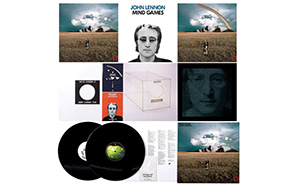
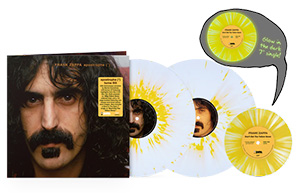

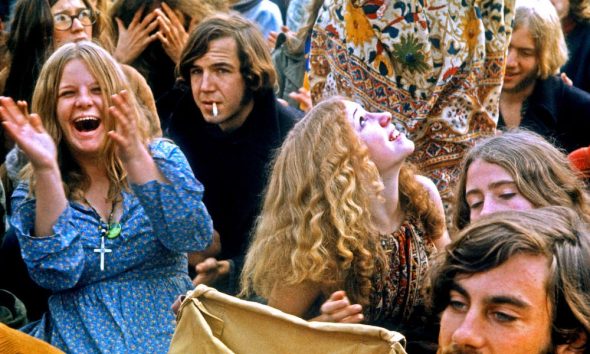
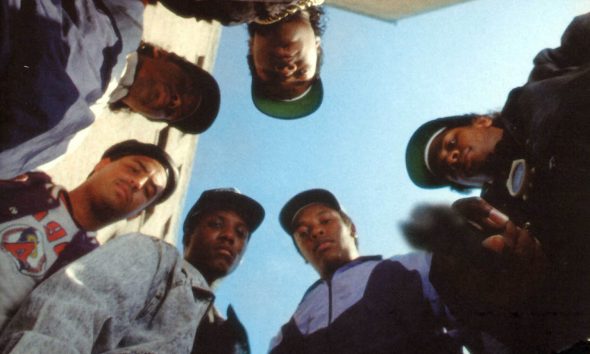

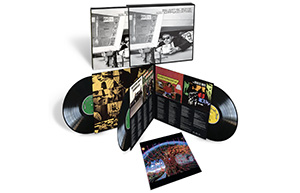

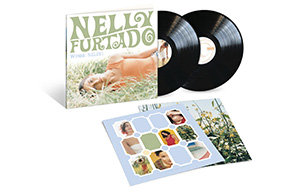
Joel D'Errico
June 22, 2020 at 9:12 pm
April 23rd 2020 ” Living in a Ghost Town ” # 1 ITUNES in ONE DAY
Coming up on 60 Years Tremendous.. Keep Rollin Guys !!
Ivan
June 24, 2020 at 12:29 am
Still the greatest
Ivan
June 24, 2020 at 12:30 am
Now I’m 70 and still rockin to the stones
Brian_PDX
June 25, 2020 at 2:56 pm
The article borders on the laughable as it was Brian Jones who literally made the band, the style and, as Dave Mason told me, “ones was the best musician in that f’ing group.” Brian taught fashion to Jagger, guitar licks to Richards and both of them how to pick up girls. Brian not only saved and made many songs Jagger/Richards gave up on, but created sounds on instruments rarely if ever used. Paint it Black, Lady Jane, Ruby Tuesday and so many others were made hits by Jones’ creativity and versatility. Bill Wyman is also ignored in the article and he was one of the best bassists in music. He quit the band as the Glimmer Twins refused to give him credit for the songs he helped make hits, just as they did to Brian. The article is a piece of Jagger/Richards propaganda and simply not accurate.
MP
June 22, 2022 at 7:31 pm
Oh yeah!